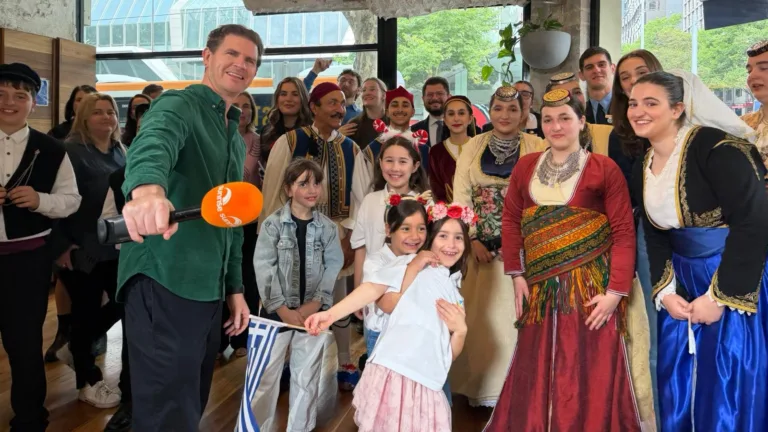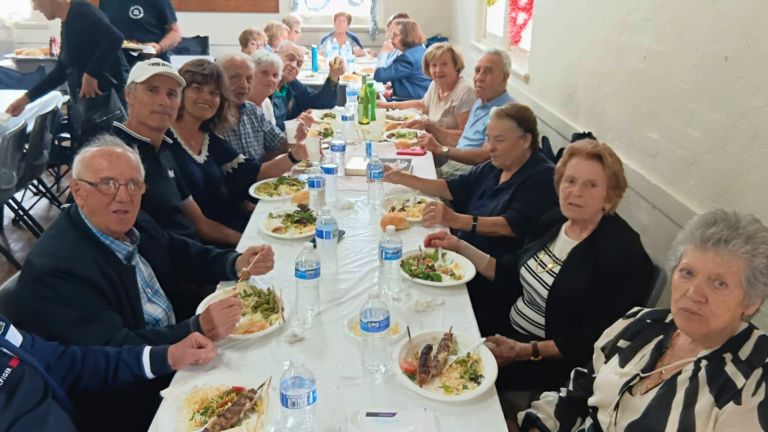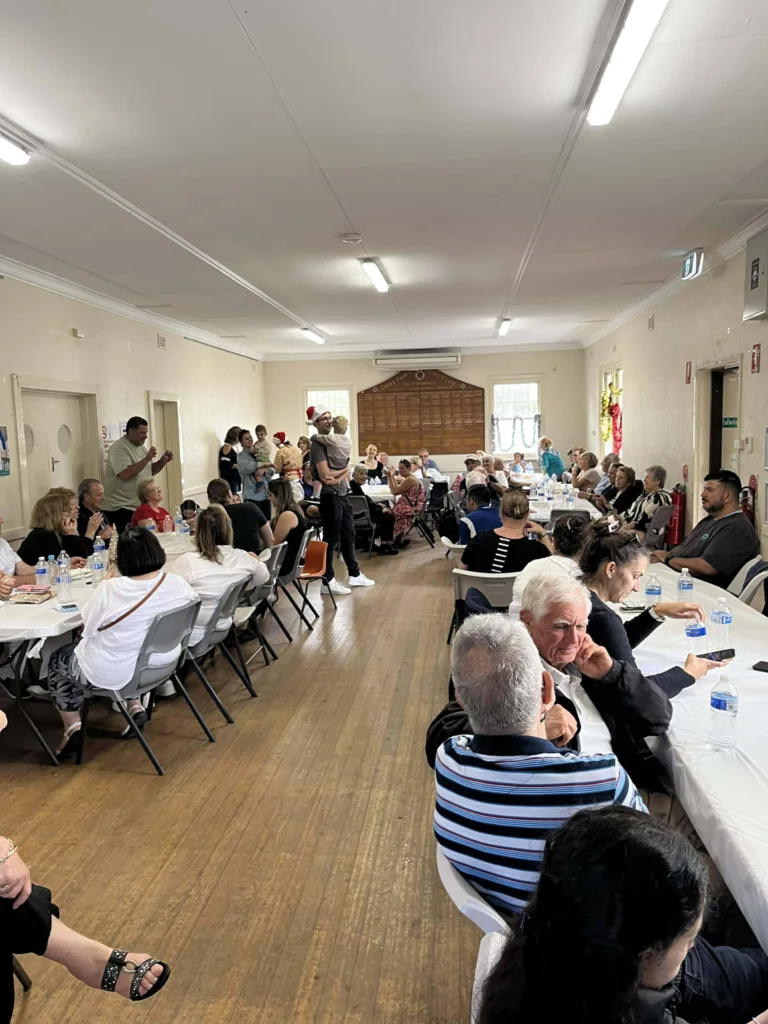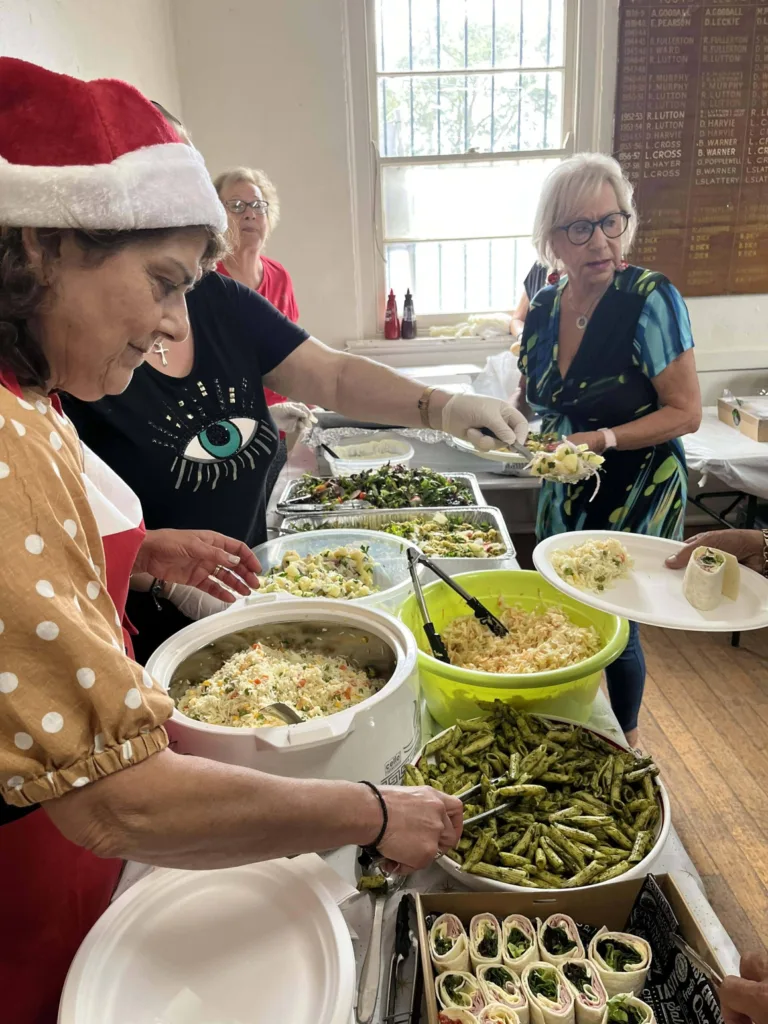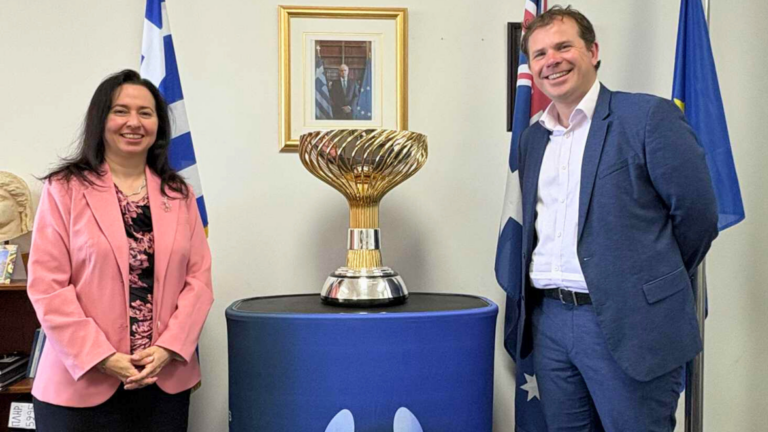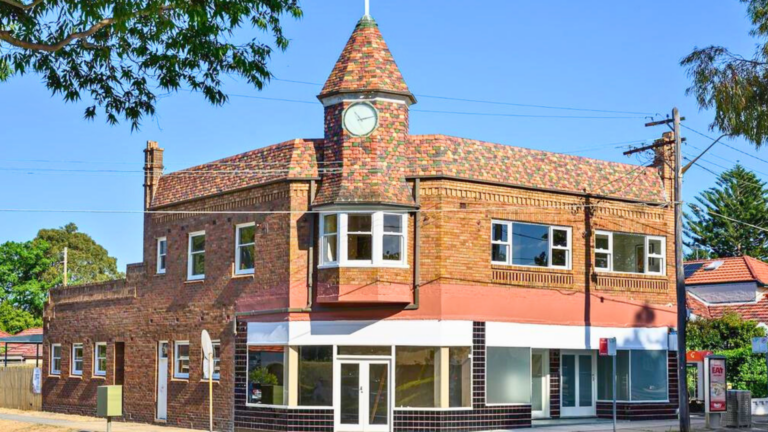More than 30 members of Melbourne’s Greek community gathered on Wednesday, December 10 at the Greek Centre and Stalactites for a live Sunrise (Channel 7) broadcast, sharing dance, music and tradition on national television.
The morning featured performances by Pegasus Dance Academy, Florina Aristotelis Dance and Pontiaki Estia, while students from the Greek Community of Melbourne Schools and St John’s College sang the kalanda. Eleni and Anna Lykopandis made a vasilopita, whilst there was also a segment featuring Oasis Coffee.
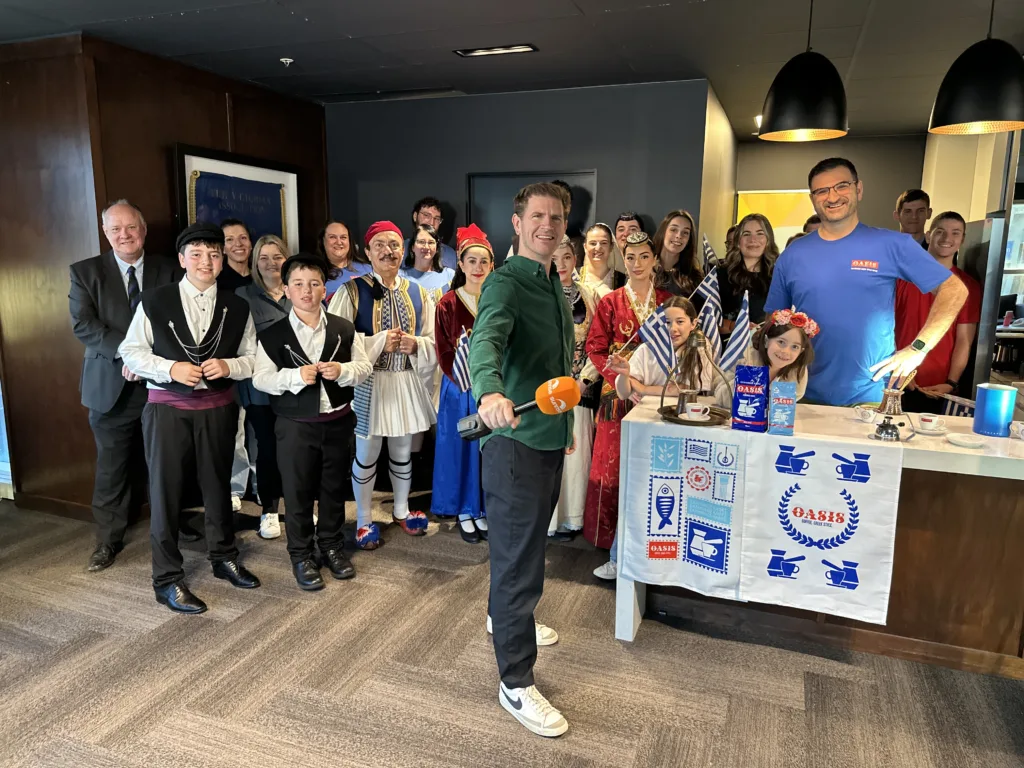
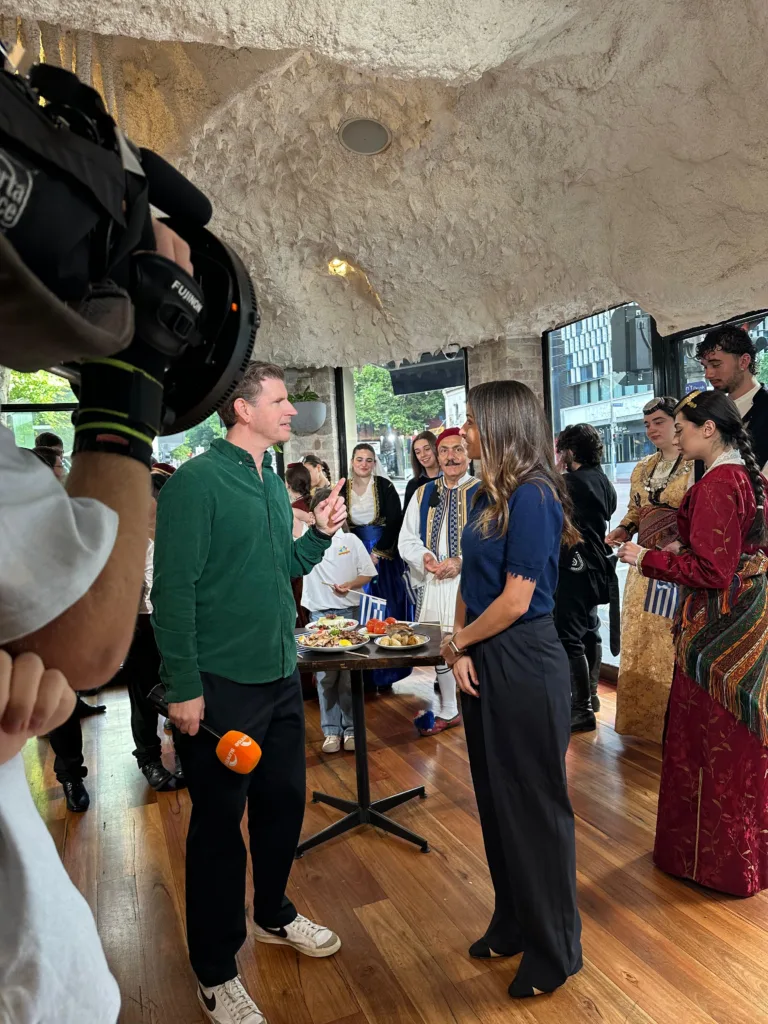
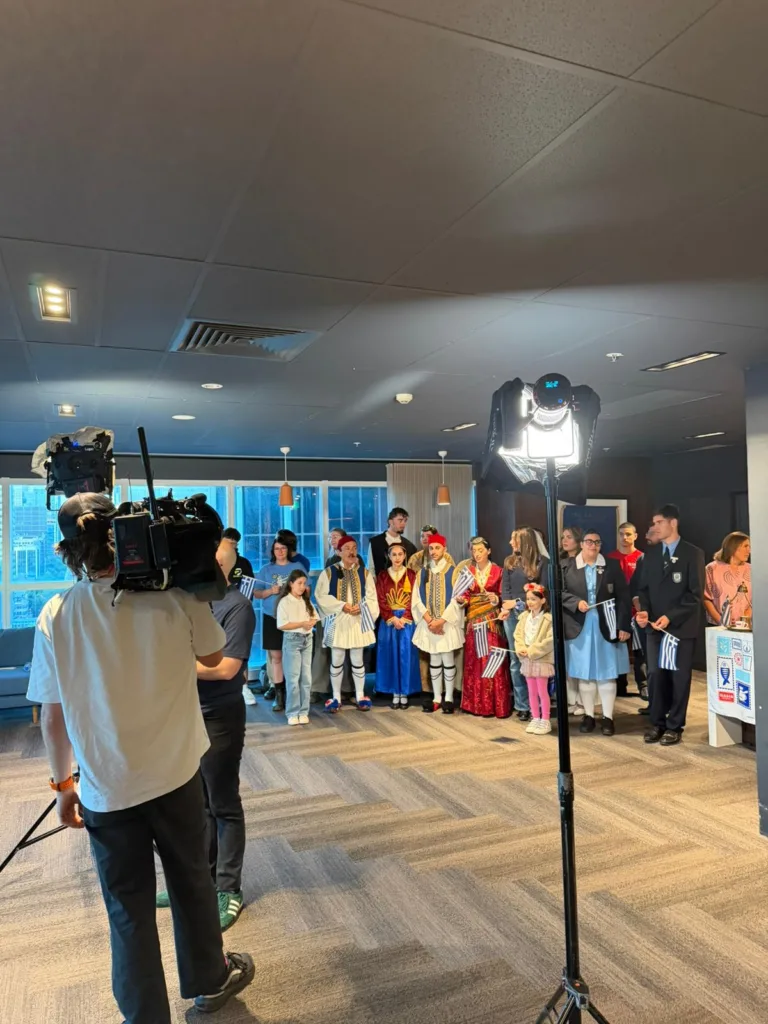

Nicole from Stalactites also spoke with presenter Sam Mac about the iconic restaurant and its food.
In a post following the event, St John’s College Preston celebrated the occasion, writing: “Our young people proudly represented St John’s, sharing their Christmas traditions and showcasing the vibrant spirit of our Hellenism program on national television.”
The College also thanked the organisers and families: “A huge thank you to the Greek Community of Melbourne for the invitation, and to our families for the early start and ongoing support. Moments like these highlight the strength of our community connections and the amazing opportunities available to our students. Proud of our College. Proud of our kids.”
Community leaders described it as a great morning and an opportunity to proudly highlight Greek Australian culture on national TV.
